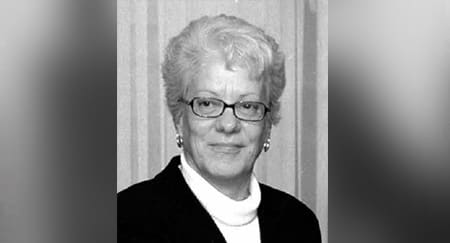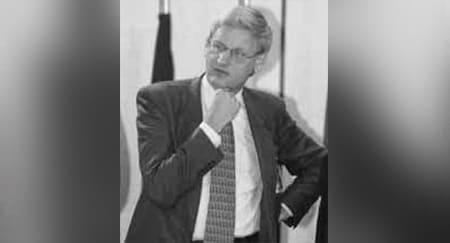Kosovo visit
Lord Robertson visited Kosovo on 30 November, where he cautioned both Serbs and ethnic Albanians against supporting militant extremists in the Presevo Valley.
On 28 November at NATO, Lord Robertson met Latvian President Vaira Vike-Freiberga to discuss preparations for possible NATO membership. He later met President Aleksander Kwasniewski of Poland to discuss defence reform.
Slovak Prime Minister Mikulas Dzurinda met Lord Robertson at NATO on 24 November.
Lord Robertson visited Turkey on 22 to 23 November to meet Turkish Prime Minister Bülent Ecevit and speak to the Turkish Economic and Social Studies Foundation.
German Chancellor Gerhard Schröder visited NATO on 22 November to discuss with Lord Robertston recent developments in EU-NATO security cooperation, German defence reform, and the situation in the Balkans.
Lord Robertson attended the 46th annual session of the NATO Parliamentary Assembly, which took place from 18 to 21 November in Berlin, Germany.
Soros talks
George Soros visited NATO on 9 November to discuss possible cooperation in strengthening democratic society in southeastern Europe and central Asia with Lord Robertson.
Bulgarian Prime Minister Ivan Kostov met Lord Robertson at NATO on 20 November to discuss military reform, Bulgaria’s preparations for possible NATO membership, and developments in southeastern Europe.
On 8 and 9 November, NATO’s Military Committee held its annual two-day meeting at chiefs-ofdefence-staff level.
NATO’s Military Committee visited Kosovo and Bosnia and Herzegovina (Bosnia) to review the peace processes, meeting KFOR and SFOR commanders, heads of other international agencies, and local political and military leaders.
Lord Robertson attended the Atlantic Treaty Association general assembly in Budapest, Hungary, from 31 October to 3 November and later met the Hungarian President Ferenc Mádl and Prime Minister Viktor Orbán.
Representatives from the Verkhovna Rada (the Ukrainian parliament), the NATO Parliamentary Assembly and NATO’s international civilian and military staffs gathered at NATO on 2 and 3 November to discuss NATO-Ukraine cooperation.
Lord Robertson addressed the permanent council of the Organisation for Security and Cooperation in Europe (OSCE) in Vienna on 2 November. He also met Austrian Chancellor Wolfgang Schüssel, Foreign Minister and OSCE Chairperson-in-Office Benita Ferrero-Waldner and Defence Minister Herbert Scheibner.
Secure elections
Lord Robertson expressed satisfaction at the conduct of the 28 October municipal elections in Kosovo. KFOR worked closely with the OSCE and the UN Interim Administration in Kosovo to maintain a secure environment and provide logistical assistance.Nine NATO and 11 Partner countries participated in Cooperative Determination 2000, a computerassisted exercise in Lucerne, Switzerland between 1 and 10 November. The International Committee of the Red Cross and the office of the UN High Commissioner for Refugees also participated in the exercise, aimed at training participants in staff procedures for peacesupport operations.
Eleven NATO countries took part in ARRCADE Fusion 2000, a war-fighting exercise, in Germany between 13 and 26 October under the command of the Allied Command Europe Rapid Reaction Corps.
Between 16 and 28 October, forces from six NATO countries participated in Unified Spirit 2000, a naval exercise in the Western Atlantic and Caribbean, to develop interoperability between multinational joint forces and the ability to adapt operations from low intensity to high intensity conflicts.
Lord Robertson travelled to Switzerland on 26 October in advance of that country’s 26 November referendum on the reduction of Swiss defence expenditure by 50 per cent over ten years. He met Swiss President and Defence Minister Adolf Ogi and Foreign Minister Joseph Deiss, and attended a symposium on Security through Cooperation.
The Conference of National Armaments Directors, which deals with armaments cooperation and acquisition among NATO members, met on 24 and 25 October in Brussels, Belgium.
The NATO-Ukraine working group on scientific and environmental cooperation met for the first time on 18 October 2000 at NATO.
Prosecutor’s address
Carla Del Ponte, prosecutor of the International War Crimes Tribunal in The Hague, addressed the Euro-Atlantic Partnership Council on 18 October.
The second phase of submarine exercise Cooperative Poseidon took place between 9 and 13 October in Den Helder, the Netherlands, following an exercise in Stockholm, Sweden last March. The aim is to develop common safety procedures between NATO and Partner countries to reduce the risk of submarine accidents.
KFOR command change
General Carlo Cabigiosu of Italy took command for six months of KFOR on 16 October. He succeeded General Juan Ortuño of Spain.During a two-day visit to Sofia, Bulgaria, from 12 to 13 October, Lord Robertson met President Petar Stoyanov and Prime Minister Ivan Kostov. He also addressed the Atlantic Club of Bulgaria and participated in a meeting of defence ministers from countries participating in NATO’s Membership Action Plan.
Exercise Adventure Exchange 2000 took place in northern Greece from 9 September to 4 October. Troops from 15 NATO member states trained for the common defence of NATO territory.
Exercise Destined Glory 2000, involving maritime, air and amphibious forces from eight NATO countries, took place in the Aegean and Eastern Mediterranean Seas between 9 and 25 October.
During its third visit (4-6 October) to Ukraine since the signing of the NATO-Ukraine Charter in 1997, NATO’s Political Committee met senior representatives from the foreign ministry, the Ukrainian commission for relations with NATO and members of the Ukrainian parliament.
Three beneficiaries of grants under NATO’s Science Programme - Zhores I. Alferov, Alan G. MacDiarmid and Paul Greengard - were co-recipients this year of Nobel prizes for Physics, Chemistry and Physiology/Medicine, respectively.
UN Secretary-General Kofi Annan visited NATO on 5 October to discuss security challenges in the Balkans, as well as NATO’s contribution as a regional organisation to UN peacekeeping operations.
Hand of Friendship
In the wake of the fall of former Yugoslav President Slobodan Milosevic, Lord Robertson offered a hand of friendship to the people of the Federal Republic of Yugoslavia. Speaking at an informal meeting of NATO defence ministers in Birmingham, England, on 10 October, Lord Robertson welcomed the democratic transition and promised to help the Yugoslav people find their true place in the Euro-Atlantic community.
Video dialogue
During video conferences on 2 and 3 October, Lord Robertson, Chairman of the Military Committee Admiral Guido Venturoni and NATO ambassadors discussed progress in KFOR’s mission with outgoing KFOR Commander General Juan Ortuño and the implementation of the Dayton Agreement in Bosnia with High Representative Wolfgang Petritsch and SFOR Commander General Michael L. Dodson.Prime Minister Ljubco Georgievski of the former Yugoslav Republic of Macedonia(*) visited Lord Robertson at NATO on 27 September.
On 25 and 26 September, Lord Robertson travelled to Georgia, where he met President Eduard Shevardnadze and several government ministers.
Trans-Carpathia 2000, a disasterrelief exercise, took place in Brussels, Belgium, and Uzhgorod, Ukraine, between 20 and 29 September and involved soldiers from two NATO member states and nine Partner countries.
Future challenges
Lord Robertson, NATO ambassadors, senior NATO officials, government experts and academics met in Berlin, Germany, on 21 and 22 September to discuss future Alliance challenges at the annual NATO Review Conference.On 20 September, the Supreme Allied Commander Europe (SACEUR), General Joseph Ralston, briefed the North Atlantic Council on KFOR and SFOR preparations for providing security for upcoming elections in Kosovo and Bosnia.
Lord Robertson analysed NATO’s new role in crisis management and its impact on the Alliance’s agenda at a seminar organised by the George Marshall Center in Garmisch, Germany, on 14 September, before travelling to the NATO Defense College in Rome, Italy, to give the Eisenhower Lecture on The relevance of Atlanticism.
Milestone meeting
The North Atlantic Council and the EU interim Political and SecurityCommittee met for the first time at ambassadorial level in Brussels, Belgium, on 19 September to take stock of progress in EU-NATO ad hoc working groups, set up to define arrangements for EU access to NATO collective assets, and permanent consultation mechanisms between the two organisations.
Bildt briefing
Carl Bildt, UN Special Envoy for the Balkans, briefed the North Atlantic Council on 13 September on the situation in the Balkans.
Exercise Cooperative Best Effort 2000 took place at Cluj-Napoca in northwestern Romania between 11 and 22 September. It involved 400 troops from eight NATO countries and nine Partner countries and 800 Romanian troops, and focused on operational aspects of peace-support.
Then Slovene Prime Minister Andrej Bajuk visited Lord Robertson at NATO on 13 September.
Forces from six NATO countries and eight Partner countries conducted a peace-support exercise, Cooperative Key 2000, involving aircraft and medical personnel, from 4 to 15 September in southeastern Romania.
The Slovene Language Training Centre was officially designated by NATO as the seventh PfP Training Centre. The centre offers courses to participants from any Partner country wishing to learn English.
NATO Chiefs of Defence Staff met in Athens, Greece, on 11 September and Istanbul, Turkey, on 15 September to discuss the Balkans and review NATO’s force structure.
On 8 September, US General Michael L. Dodson took over as Commander of SFOR in Bosnia from US General Ronald Emerson Adams.
Atlantic command
US General William F. Kernan succeeded US Admiral Harold W. Gehman Jr. as NATO’s Supreme Allied Commander, Atlantic (SACLANT) on 5 September.
Lord Robertson attended a symposium organised in Reykjavik, Iceland, on 6-7 September by SACLANT on the Future of North Atlantic Security - Emerging Strategic Imperatives. He underlined the importance of NATO’s role in Kosovo, relations with Russia, cooperation with Partner countries, growing EU-NATO collaboration and the need to boost Allied defence capabilities.
Talking shop
At a meeting of the Permanent Joint Council on 24 July, General Valery Manilov, First Deputy Chief of the General Staff of Russia’s Armed Forces, gave a briefing on Russia’s military doctrine and the Russian perspective on the Alliance’s strategic concept.Lord Robertson visited Spain on 28 July, meeting with Prime Minister José Maria Aznar, Defence Minister Federico Trillo, and Foreign Minister Josep Pique.
Lord Robertson visited France on 27 July to meet with French Prime Minister Lionel Jospin.
For more information see NATO Update at www.nato.int/docu/update/index.htm






